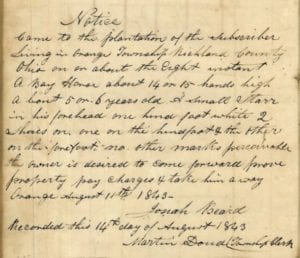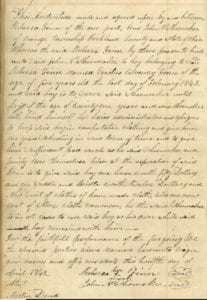Ohio’s Township Records
You might be missing something if you haven’t checked out Ohio’s township records. In New York, they call them towns. They just don’t have any in Kentucky!
Township records are a remnant of the parish chest in old England long before the separation of church and state. This was the seat of government. Townships were six-miles square in the rectangular land survey portion of Ohio; five-miles square in the Western Reserve.

A township had three trustees and a clerk. They now call them fiscal officers. That’s right! They still exist! In olden times, they also had road supervisors, heads of each school district, fence viewers, constables, cemetery sextons, and justices of the peace.
What type of records survive for townships? You’ll find minutes, election reports, oaths of office, minor lawsuits, criminal actions, schoolhouse deeds, bridge construction contracts, removal records, bastardy cases, militia rolls, marriages, strays, ordinances, indentures, marks and brands, cemetery lot deeds, delinquent taxpayers, student registers, and records of the poor.
Townships evolved just like counties did. Boundaries change. New townships were created from old ones. Names sometimes change. Townships are sometimes absorbed totally by municipalities. County commissioner’s minutes are good for studying the evolution of townships in a county because they mention the land included when each new township was created.

Just a couple years ago, the Orange Township Trustees in Nankin, Ashland County, Ohio, hired a locksmith to drill open a safe in their office – a situation where the combination had been lost for about fifty years. It was filled with old township records. They gave permission to the Ohio Genealogical Society to scan these ledgers and place them online. After logging in on the OGS website (ogs.org) with your email and password, go to Digitized Manuscripts under the Genealogy Resources tab. Filter for Ashland County and you’ll be able to view around twenty-five volumes of minutes, cash books, and cemetery lot deeds.
Township records are little used by genealogists, but they contain a lot of treasures. If you stumble on some in your local archives, consider allowing OGS to scan them and share them as part of our member resources. They are certainly unique records and are not found elsewhere on the web.
Tom Neel, OGS Library Director